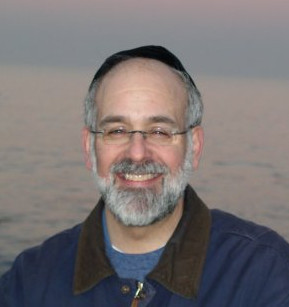Rabbi David Etengoff
338 results total, viewing 251 - 260
|
The exact origins of Kol Nidrei are lost in the sands of time. One of the earliest sources regarding our present practice is found in a responsum of Rav Natronai Gaon. It is quoted in the commentary of Rabbeinu Asher ben Yechiel, known as the “Rosh,” to Talmud Bavli, Yoma, 8:28:
more
By Rabbi David Etengoff
|
10/6/11
|
|
This week’s parasha contains one of the Torah’s most difficult passages: “And Aharon’s sons, Nadav and Avihu, each took his pan, put fire in them, and placed incense upon it, …
more
By Rabbi David Etengoff
|
3/28/19
|
|
Teshuvah, the process of returning to the path of Torah observance, is discussed throughout Rabbinic literature. In particular, Talmud Bavli, Yoma 86a-b presents a number of salient aspects of …
more
By Rabbi David Etengoff
|
10/3/19
|
|
In the first mishnah of Pirkei Avot, our Sages teach that the Torah was given to us by Hashem along with the Oral Law: “Moshe received the Torah at Sinai, transmitted it to Yehoshua, who did in …
more
By Rabbi David Etengoff
|
7/18/18
|
|
One of the most celebrated sections of our parasha, Emor, focuses on the moadim. Its 44 pasukim comprise the 23rd chapter of Sefer Vayikra and serve as an encyclopedic presentation of the …
more
By Rabbi David Etengoff
|
5/6/20
|
|
One of the most fascinating aspects of the Torah is the interweaving of “ethical” and “ritual” laws. For example, at the beginning of Parashat Kedoshim, we are met with the general commandment to be “holy,” the mitzvah of Kibud Av v’Am (parental respect), and almost immediately thereafter by laws referring to sacrificial offerings. The juxtaposition of these commandments contains a vital message, namely, “ethics” and “ritual” are inseparable. Together they form the constitutive elements from which Judaism is fashioned.
more
By Rabbi David Etengoff
|
1/27/12
|
|
Ya’akov Avinu is described in our parasha, Toldot, as “ish tam yosheiv ohelim” (“a complete individual who dwelt in tents.” Rashi helps us understand this phrase by …
more
By Rabbi David Etengoff
|
11/3/21
|
|
This is Shabbat Hagadol, the Great Shabbat, an appellation that urges us to focus on the meaning of geulah (redemption), since it is juxtaposed to Pesach, the preeminent Festival of …
more
By Rabbi David Etengoff
|
3/21/18
|
|
Our parasha, Vayashev, begins with the pasuk: “Jacob dwelt in the land of his father’s sojourning, in the land of Canaan” (Bereishit 37:1). At first glance, it appears to be …
more
By Rabbi David Etengoff
|
12/6/17
|
|
The end of parasha Beshalach focuses on the epic battle between our nascent nation and the marauding desert tribe of Amalek:
Amalek came and fought with Israel in Rephidim. So Moses said to …
more
By Rabbi David Etengoff
|
2/1/23
|

 62.0°,
Mostly Cloudy
62.0°,
Mostly Cloudy 
